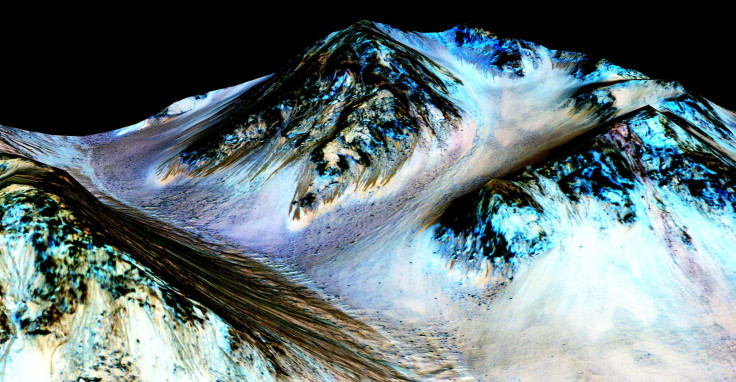
NASA scientists announced on Monday that they have evidence to confirm the existence of water flowing on the surface of Mars, a find that opens the door to the possibility of past or present life on the planet.
During a news conference on Monday, the National Aeronautics and Space Administration discussed the major science finding: “I think all of the scientific discoveries we’re making on the surface of Mars…these observations are giving us a much better view that Mars has resources that are useful to future travels," said NASA associate administrator John Grunsfeld, "I think all of the scientific discoveries we’re making on the surface of Mars, these observations are giving us a much better view that Mars has resources that are useful to future travels."
Water on Mars, not just frozen. Is anything drinking it? Someday we wil find out on our #JourneyToMars http://t.co/ysbP8e2shY
— John Grunsfeld (@SciAstro) September 28, 2015Scientists and investigators have expressed their opinions on the findings, which can benefit future human missions to Mars: “That’s a direct detection of water in the form of hydration of salts. There pretty much has to have been liquid water recently present to produce the hydrated salt,” said professor Alfred S. McEwen, the principal investigator of images from a high-resolution camera on NASA’s Mars Reconnaissance Orbiter.
McEwen, Lujendra Ojha, and Mary Beth Wilhem are three of the eight authors behind the essay exposing the theory that flowing water was the cause of the streaks. Although the paper doesn’t offer an explanation about where the water could be coming from, it suggests several possibilities: It could be melting subsurface ice; it might result from salts widely believed to be in the Martian soil, pulling water out of the thin Martian atmosphere; or possibly liquid is bubbling up from an aquifer, the researchers say.
© 2025 Latin Times. All rights reserved. Do not reproduce without permission.





